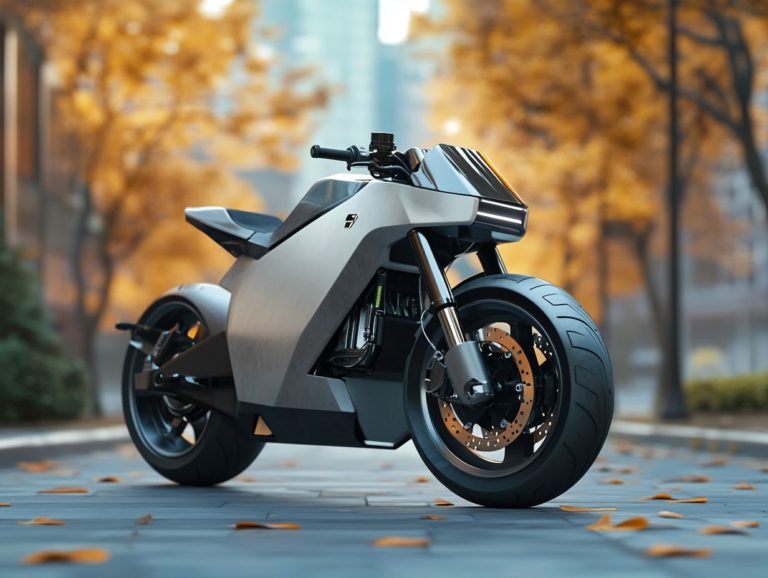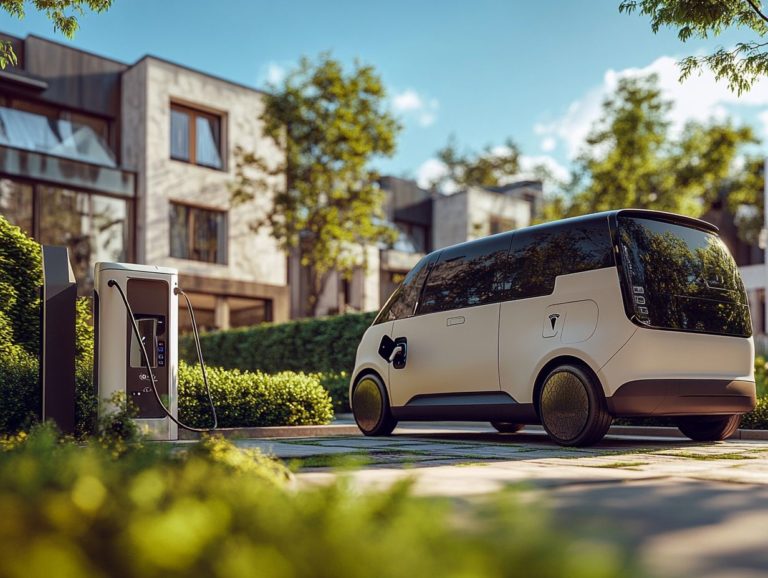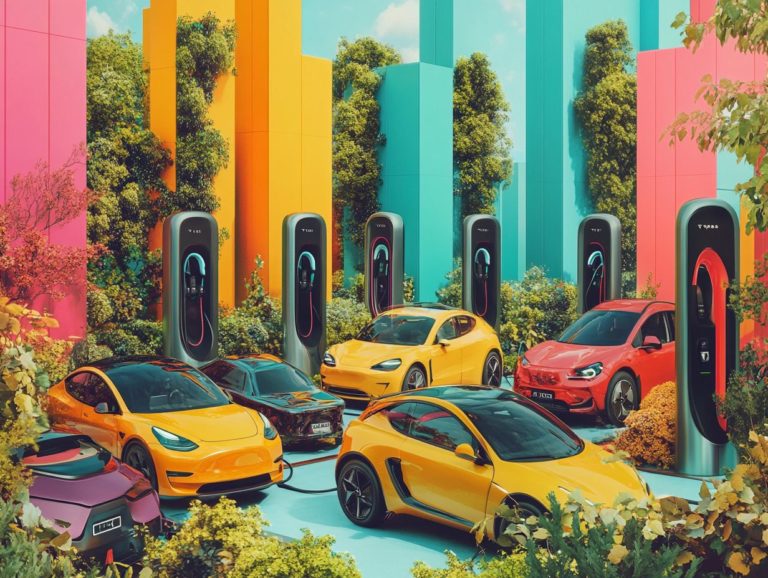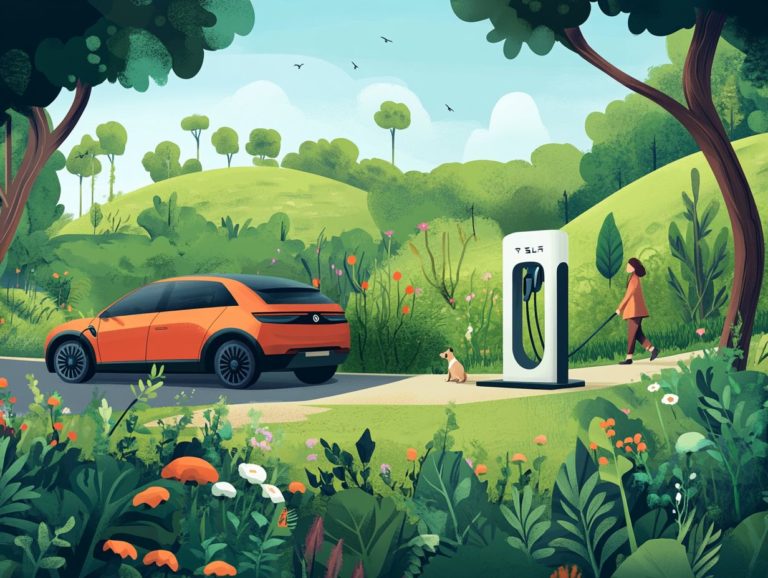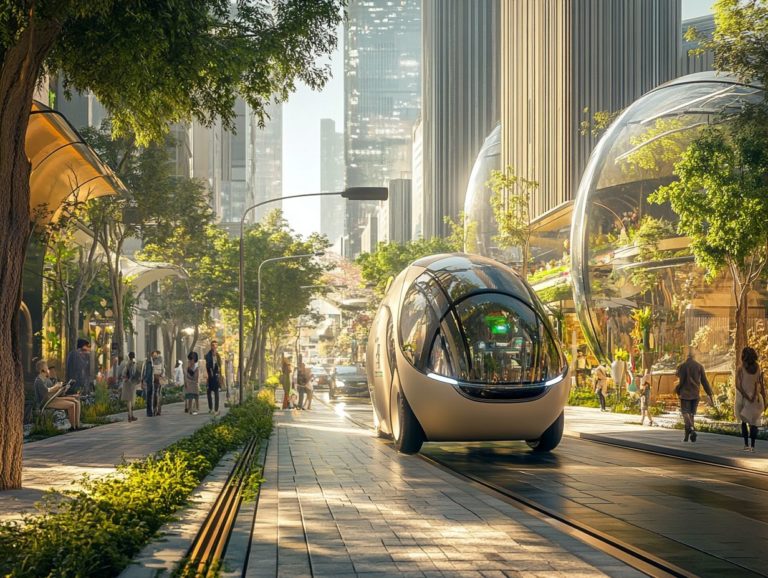3. the rise of hydrogen fuel cell vehicles explained
Hydrogen fuel cell vehicles (HFCVs) are stepping into the spotlight as a compelling alternative to conventional combustion engines and battery electric vehicles. They present a sustainable pathway for the automotive industry.
As you delve into their environmental advantages, efficiency, and performance, it s essential to consider both the benefits and the challenges these vehicles encounter.
This exploration will provide insights into the current landscape of hydrogen HFCVs, their potential for expansion, and the transformative impact they could have on the future of transportation.
Contents
- Key Takeaways:
- What are Hydrogen Fuel Cell Vehicles?
- Advantages of Hydrogen Fuel Cell Vehicles
- Challenges and Limitations of Hydrogen Fuel Cell Vehicles
- The Future of Hydrogen Fuel Cell Vehicles
- Frequently Asked Questions
- What are hydrogen fuel cell vehicles?
- What are the benefits of using hydrogen fuel cell vehicles?
- How do hydrogen fuel cell vehicles work?
- What is the current state of the hydrogen fuel cell vehicle market?
- What are the challenges facing hydrogen fuel cell vehicles?
- Are hydrogen fuel cell vehicles the future of transportation?
Key Takeaways:
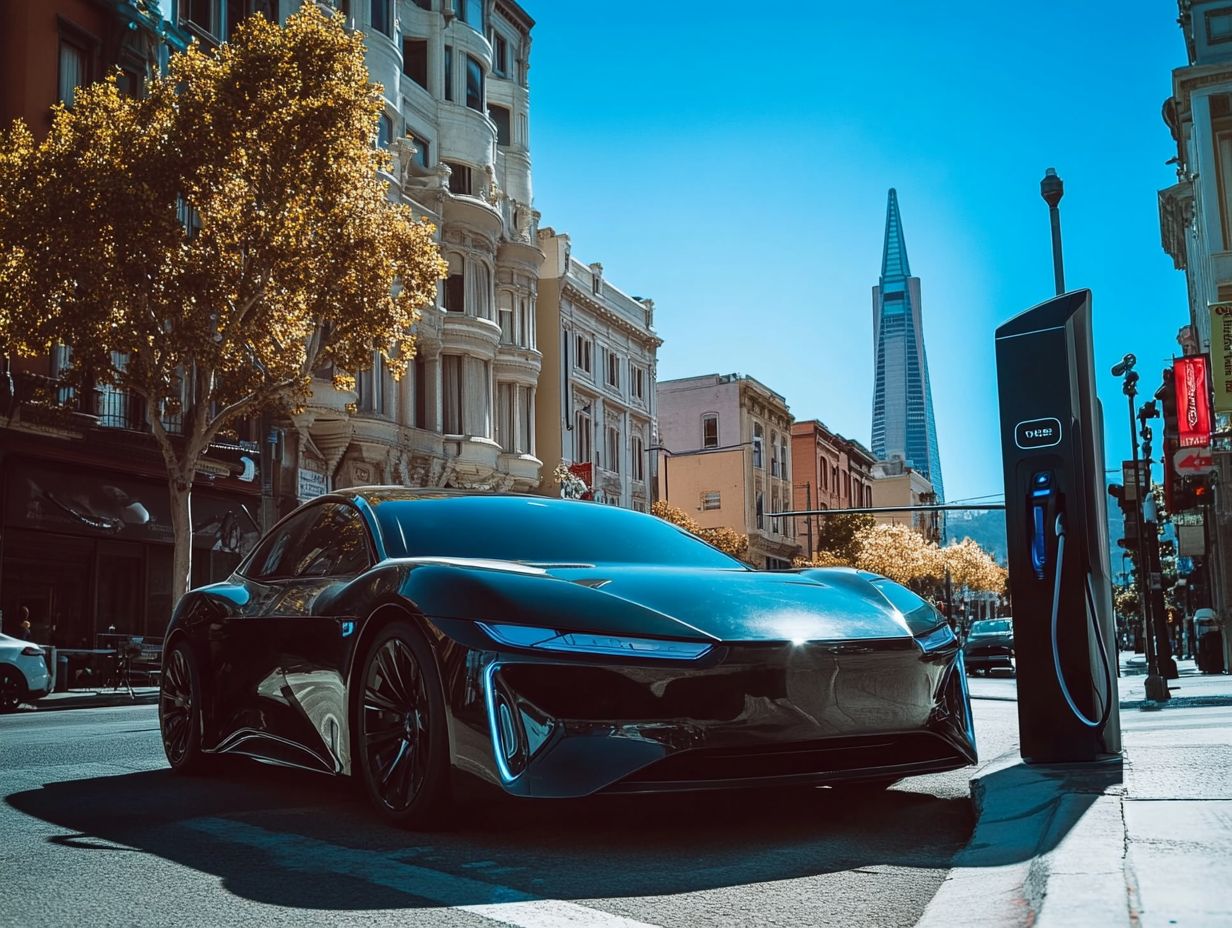
Hydrogen fuel cell vehicles offer significant environmental benefits, emitting only water vapor as a byproduct and reducing carbon emissions.
Efficiency and performance are key advantages of hydrogen fuel cell vehicles, with longer driving ranges and faster refueling times compared to electric vehicles.
The growth of hydrogen fuel cell vehicles in the auto industry is exciting! However, challenges such as infrastructure and cost must be addressed for widespread adoption.
What are Hydrogen Fuel Cell Vehicles?
Hydrogen Fuel Cell Vehicles (HFCVs) represent a significant change in the transportation landscape, harnessing advanced hydrogen and fuel cell technology to power electric motors with zero emissions.
These vehicles cleverly utilize a fuel cell stack that converts compressed hydrogen into electricity, driving the electric motor and providing a compelling alternative to traditional gasoline-powered and hybrid cars.
Major manufacturers like Toyota, Hyundai, and Mercedes-Benz are at the forefront of this clean transportation revolution, working with global efforts focused on deep decarbonization and environmental sustainability particularly in progressive regions like California, where these innovations are quickly becoming popular.
Advantages of Hydrogen Fuel Cell Vehicles
The advantages of Hydrogen Fuel Cell Vehicles (HFCVs) are numerous, especially regarding their role in promoting clean transportation and minimizing environmental impact.
With zero tailpipe emissions, HFCVs present an appealing option for eco-conscious individuals and municipalities focused on achieving cleaner air while adhering to stringent regulations.
The technology allows for quick refueling, on par with traditional gasoline vehicles, which further enhances the allure of hydrogen fueling in the transportation sector.
Environmental Benefits
One of the most compelling environmental benefits of hydrogen fuel cell vehicles is their remarkable ability to produce zero emissions during operation. This feature significantly enhances deep decarbonization efforts within the transportation industry.
By harnessing hydrogen as a fuel source, you effectively reduce reliance on fossil fuels, thereby lowering greenhouse gas emissions and improving air quality in urban areas. This transformative shift not only supports the fight against climate change but also carries profound implications for public health.
Countries like Japan and Germany are at the forefront of hydrogen technology adoption, with Japan setting an ambitious goal of having 800,000 fuel cell vehicles on the road by 2030, as highlighted by the International Energy Agency.
Moreover, cities such as London and California are making significant investments in hydrogen infrastructure, showcasing a strong commitment to cleaner air and sustainable transportation solutions. In fact, hydrogen fuel cells can cut CO2 emissions by up to 45% compared to conventional combustion engines, positioning them as an essential element of future eco-friendly urban mobility.
Join the clean transportation movement today!
Efficiency and Performance
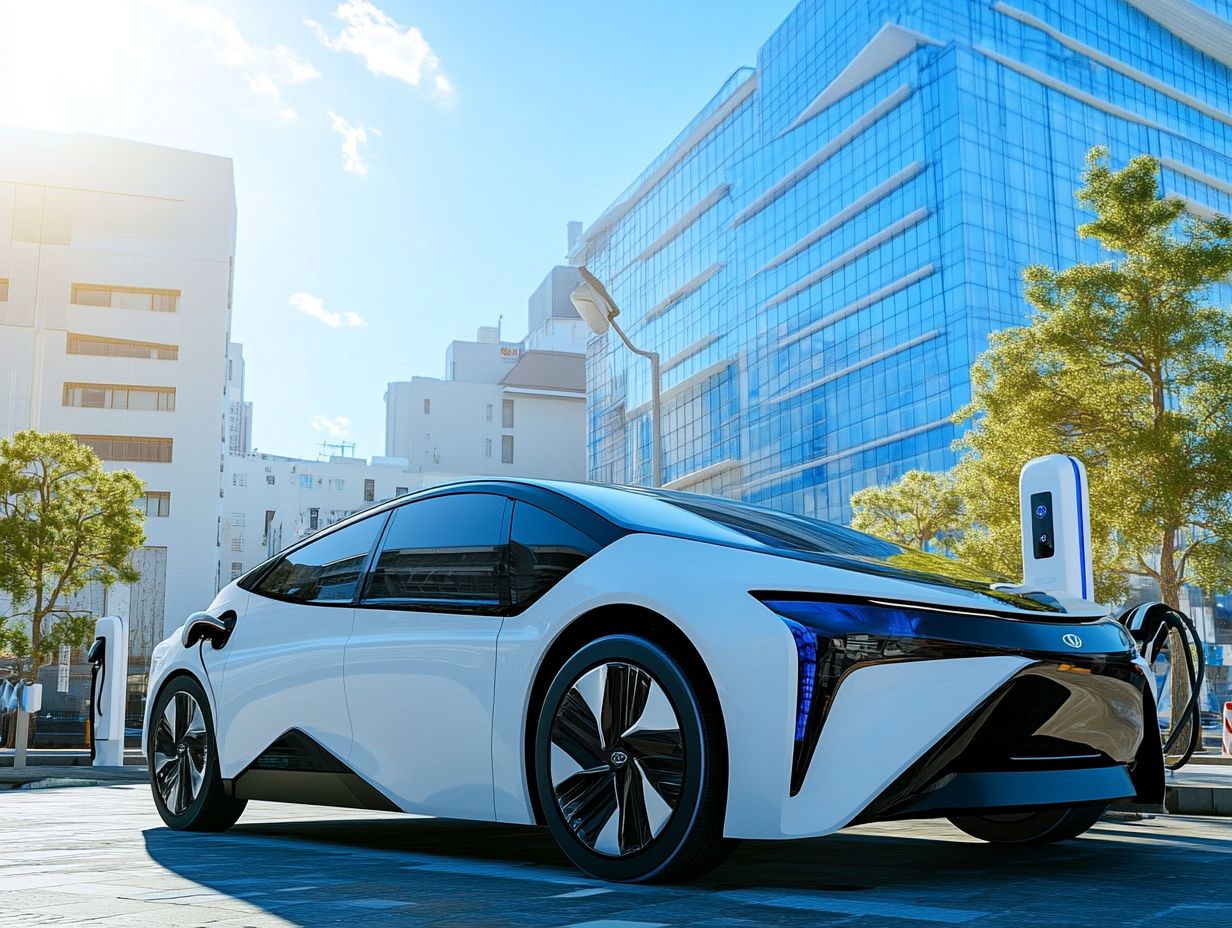
Hydrogen fuel cell electric cars are designed for exceptional efficiency and performance. They often outperform traditional combustion engines.
The electric motor powered by the fuel cell stack provides rapid acceleration. This creates a smooth and enjoyable driving experience.
Compared to battery electric vehicles (EVs), fuel cell cars generally offer longer ranges. They also have much quicker refueling times.
Battery electric vehicles excel in efficiency over short distances. However, hydrogen-powered cars are perfect for long journeys while still providing great driving dynamics.
Hybrid vehicles mix fossil fuels and electricity, offering some versatility. But they often don’t fully reduce emissions or achieve complete electric range.
This highlights the potential of fuel cell technology to transform sustainable mobility.
Challenges and Limitations of Hydrogen Fuel Cell Vehicles
Hydrogen fuel cell vehicles have advantages, but significant challenges hinder their widespread adoption.
A key issue is the need for a strong hydrogen infrastructure. A sufficient number of fueling stations is essential for consumer acceptance.
Also, high production costs and safety concerns about hydrogen storage must be addressed. These factors are crucial to making these vehicles viable alternatives.
Infrastructure and Cost
The lack of infrastructure for hydrogen fuel cell electric cars is a major challenge. Many regions still have limited hydrogen fueling stations.
Setting up this infrastructure and producing hydrogen, especially green hydrogen, can be expensive. Yet, areas like California are working hard to develop it.
State initiatives are fostering support and encouraging investment in hydrogen fueling stations. This is key to the widespread acceptance of these vehicles.
Government incentives play a vital role in lowering high production costs. By addressing funding and regulatory challenges, policymakers aim to make hydrogen technology a practical choice for clean transportation.
Safety Concerns
Safety concerns about hydrogen fuel cell vehicles are common due to hydrogen’s flammability. However, extensive testing has shown these vehicles are equipped with multiple safety features.
These safety features include:
- Robust storage tanks that withstand high pressures
- Comprehensive leak detection systems
- User-friendly safety protocols for refueling
Engineers have implemented controlled venting and automatic shut-off mechanisms to handle potential malfunctions. When comparing these measures to those in electric and combustion vehicles, it’s clear that hydrogen fuel cell vehicles prioritize safety.
Every vehicle type has its unique challenges and safety considerations. It s essential to understand the specific safety measures in place for hydrogen fuel cell vehicles.
The Future of Hydrogen Fuel Cell Vehicles
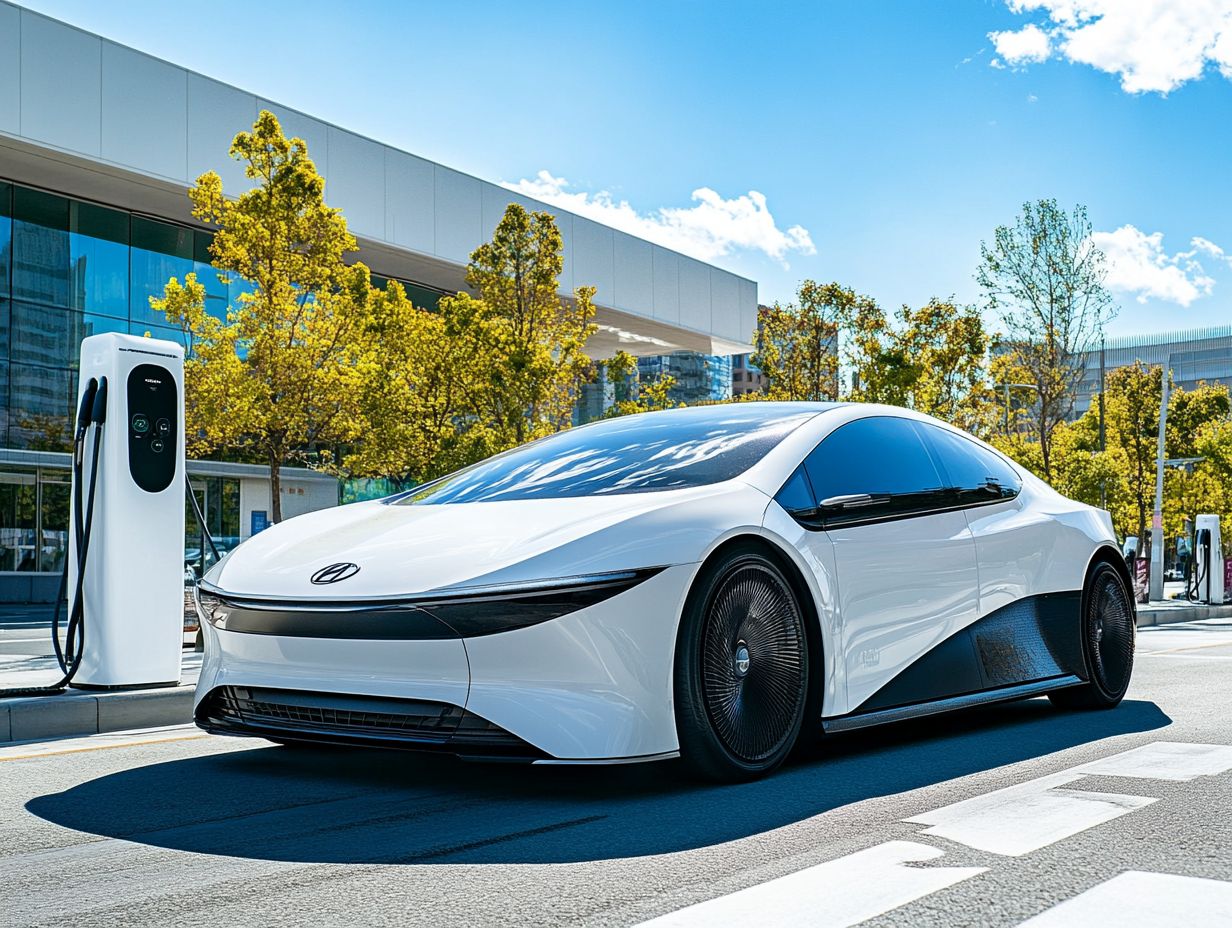
The future of hydrogen fuel cell vehicles presents remarkable potential for growth and innovation in the automotive industry, driven by the increasing demand for clean transportation solutions.
As governments and industry stakeholders prioritize deep decarbonization and sustainability, HFCVs are set to take center stage in achieving these goals. Ongoing advancements in hydrogen production and storage technology position the industry at the forefront of an exciting evolution in eco-friendly mobility.
Potential for Growth and Impact on the Automotive Industry
The hydrogen vehicle sector is on the brink of an exciting boom! Automakers like Toyota, Hyundai, and Volkswagen are pouring significant resources into research and development.
As consumer awareness rises and regulatory frameworks increasingly lean toward zero-emission targets, hydrogen fuel cell vehicles are poised to make a substantial impact in the coming decades. These vehicles are not merely alternatives to traditional electric vehicles; they could emerge as essential players in the quest for global sustainability.
Industry reports indicate that the market for hydrogen vehicles could experience exponential growth by 2030. This growth is fueled by strategic partnerships between manufacturers and energy companies dedicated to building robust refueling infrastructure.
Initiatives like the Hydrogen Mobility Europe project underscore collaborative efforts to create a thriving ecosystem that supports the adoption of hydrogen fuel cell technology. This demonstrates the sector s readiness for a transformative shift in how we envision automotive power sources.
Frequently Asked Questions
What are hydrogen fuel cell vehicles?
Hydrogen fuel cell vehicles are a type of electric vehicle that uses hydrogen gas to power an electric motor. The hydrogen gas is stored in a fuel cell and combines with oxygen to produce electricity, which powers the motor.
What are the benefits of using hydrogen fuel cell vehicles?
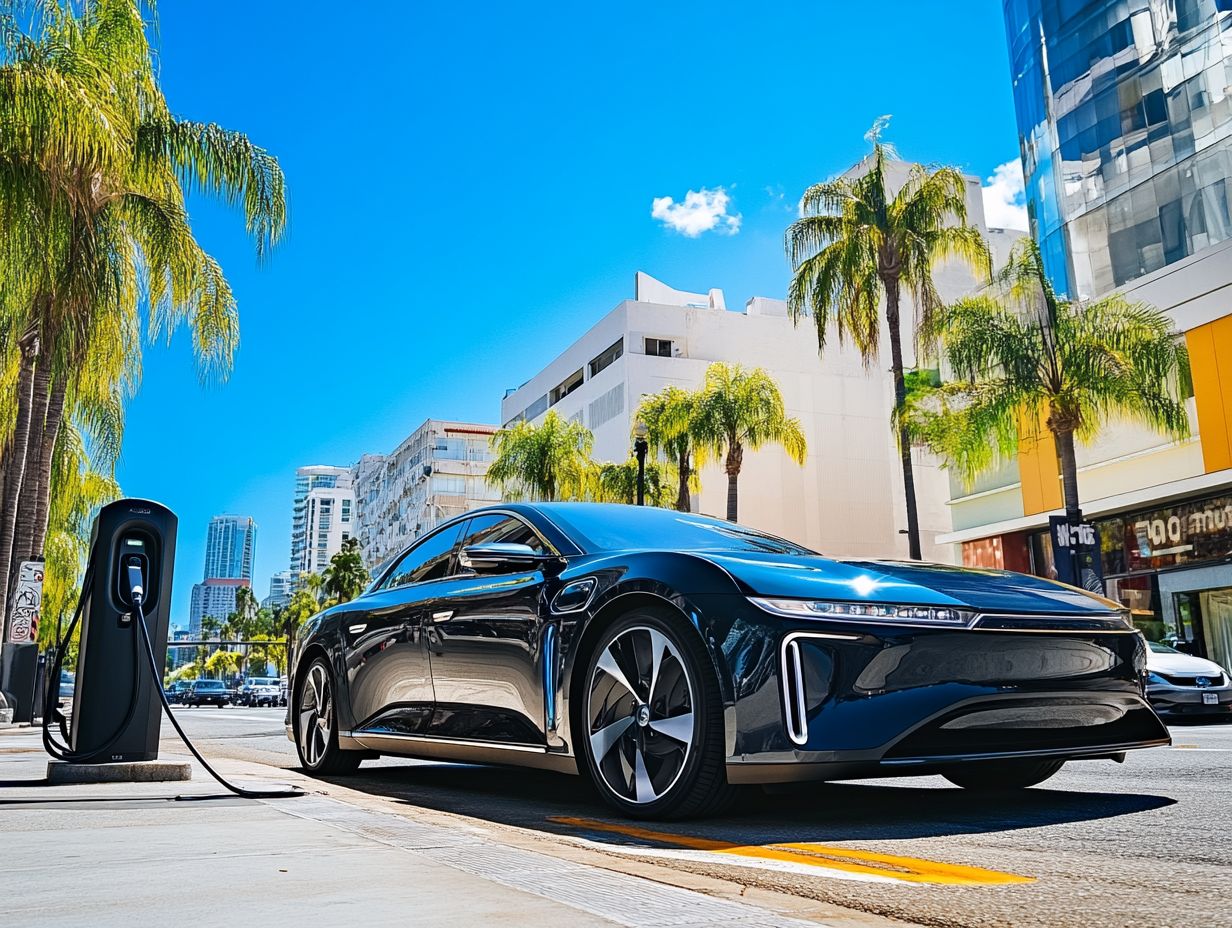
There are several benefits to using hydrogen fuel cell vehicles. These include zero emissions, longer ranges compared to traditional electric vehicles, and fast refueling times.
How do hydrogen fuel cell vehicles work?
Hydrogen fuel cell vehicles work by converting the chemical energy in hydrogen gas into electricity through a chemical reaction that produces electricity. This electricity then powers the motor, propelling the vehicle forward.
What is the current state of the hydrogen fuel cell vehicle market?
The market for hydrogen fuel cell vehicles is still in its early stages. However, there has been a significant increase in interest and investment in recent years, with several major automakers introducing hydrogen fuel cell vehicles to the market.
What are the challenges facing hydrogen fuel cell vehicles?
One major challenge facing hydrogen fuel cell vehicles is the lack of infrastructure. Currently, only a limited number of hydrogen fueling stations are available, making it difficult for consumers to refuel their vehicles.
The production of hydrogen gas is also a challenge, as it remains costly and can impact the affordability of these vehicles.
Are hydrogen fuel cell vehicles the future of transportation?
Hydrogen fuel cell vehicles have the potential to play a significant role in reducing carbon emissions and creating a more sustainable transportation system. While it is difficult to predict if they will become the dominant form of transportation, continued advancements in technology and infrastructure could make them a more viable option in the coming years.

